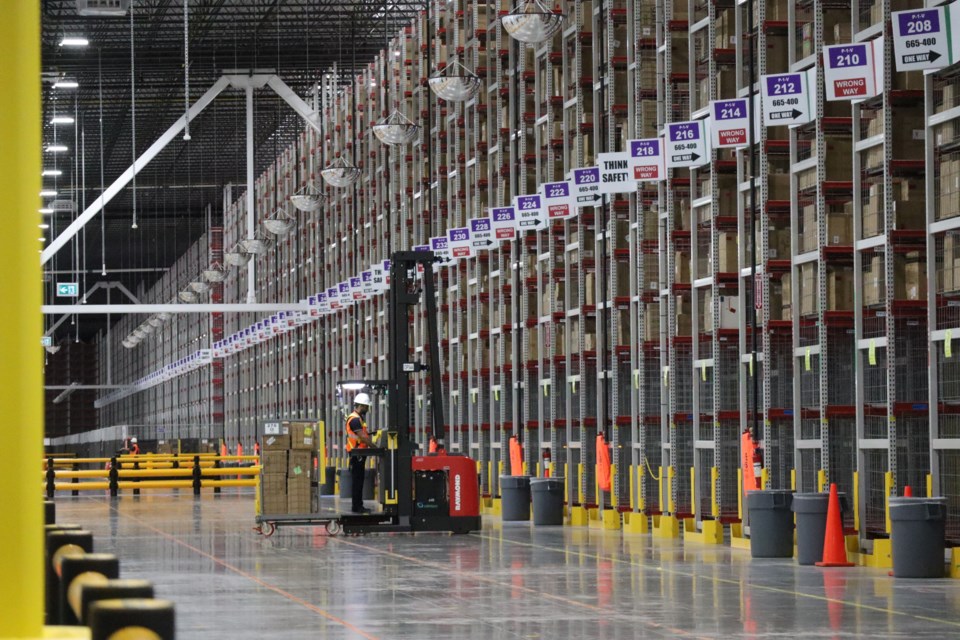The Region of Waterloo claims it didn't know a massive warehouse proposed for land in Blair was for Amazon when it made a $13.7 million error in calculating development charges in 2022.
Now the Ontario Land Tribunal (OLT) says it won't be able to recoup its loss.
That was the conclusion handed down by the OLT last month after the developer behind the warehouse appealed a request from the region to pay the outstanding development charges.
The company, identified as 140 Old Mill Road Limited Partnership, disputed the charge in an appeal to the OLT in May of last year, citing the region's failure to respond to its complaint about the charge within 60 days.
Development charges are fees collected by municipalities to help pay for upgrades to infrastructure and services related to new developments. They are charged at rates associated with the type of building under construction.
The developer behind the Amazon warehouse was billed more than $9 million in regional development charges in 2022 on an industrial assessment at a 60 per cent discount because it met the definition of a "warehouse" in the region's DC bylaw.
The company paid the bill in August 2022 and building permits were issued later that month. Two more building permits were issued between August and October, and on Nov. 8, the region sent notice of an additional $13.7 million development charge.
The region claimed at the time it didn't know Amazon would be a tenant of the building and when it found out from media coverage that it was to be a fulfilment centre, the project no longer qualified for the industrial DC rate.
Shane Fedy, the region's manager of infrastructure financing provided a sworn written affidavit to the OLT stating the 60 per cent discount in DC charge was applied erroneously without his knowledge.
When the region found out the purpose of the building through media reports, it sought to collect the outstanding DCs.
Fedy explained in his affidavit that the error in the application and calculation of what should have been the proper rate arose from "the failure of the appellants to describe the use of the development in a manner consistent with that which its own tenant had confirmed."
That may have been the case, according to lawyers for the appellant, but once a "treasurer's certificate" is issued, the amount is paid and the building permits are issued, the region cannot "retroactively assert that it is entitled" to further payment.
The OLT concluded the region's written confirmation of payment "represented official communication by the municipality to the developer, would lead a reasonable person to conclude that there were no further development charges outstanding."
The lawyers representing the appellants said to conclude otherwise "would lead to an absurd result whereby the region is entitled to reassess development charges at any time in perpetuity...resulting in a profound lack of fairness and certainty for unsuspecting property owners."
The lawyer for the region argued that failing to collect the full amount from the developer would mean Waterloo region taxpayers would have to cover the shortfall.
The OLT, in its decision, however, said the need for "good public policy demands that there be some element of finality to the imposition of development charges for an applicant and to ensure that legislation and bylaws are written without any ambiguities."




